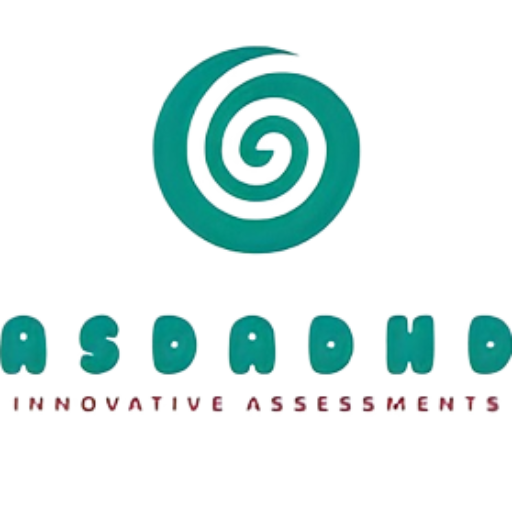22 Jul, 2023 | anishdr | No Comments
The Impact of Cannabis on the ADHD Brain
ADHD, or Attention-Deficit/Hyperactivity Disorder, is a neurodevelopmental disorder that affects both children and adults. It is characterized by persistent patterns of inattention, hyperactivity, and impulsivity. Among the many challenges that individuals with ADHD face, the use of cannabis and the risk of developing Cannabis Use Disorder (CUD) is a significant concern. However, with the right understanding and strategies, these issues can be effectively managed.
The Prevalence of Cannabis Use Among Individuals with ADHD
Cannabis is used by a startling number of people with ADHD. Studies show that more than half of daily and non-daily cannabis users have ADHD, and about one-third of adolescents with ADHD report cannabis use. People with ADHD are also three times as likely as their neurotypical peers to have ever used marijuana.
The risk of developing Cannabis Use Disorder (CUD), a problematic pattern of cannabis use linked to clinically significant impairment, is twice as high in people with ADHD. Contrary to popular belief, individuals can be mentally and chemically dependent on and addicted to cannabis. Contemporary marijuana has concentrations of THC higher than historically reported, which exacerbates this. The adverse effects of cannabis are especially amplified in people with ADHD.
The Negative Effects of Cannabis
Tetrahydrocannabinol (THC), one of cannabis’ active compounds, inhibits neuronal connections and effectively slows the brain’s signaling process. THC also affects the brain’s dendrite architecture, which controls processing, learning, and the overall health of the brain. Science has not yet fully determined whether THC’s effects are reversible; some parts of the brain show healthy neuronal growth after cannabis use stops, but other parts do not.
Short-term and long-term cannabis use also impairs motivation, memory, and performance on complicated tasks with many executive steps. Cannabis use may also lead to health-related impairments such as chronic bronchitis, chronic obstructive pulmonary disease (COPD), emphysema, cannabinoid hyperemesis syndrome (characterized by severe bouts of vomiting and dehydration), and elevated resting heart rate.
Cannabis use may exacerbate disorders like paranoia, panic, and mood disorder. Studies have also found that increased cannabis consumption can uniquely contribute to elevating suicide risk, even when controlling for underlying mental health disorders, like mood disorder or anxiety.
Cannabis Use Disorder (CUD)
Cannabis is addictive — 9 percent of people who use cannabis regularly will become dependent on it. This figure rises to 17 percent in those who start using cannabis in adolescence. CUD can develop after extended cannabis use. It is diagnosed when at least two of the following occur within a 12-month period:
Taking cannabis in larger amounts over longer periods of time
Difficulty quitting cannabis use
Strong desires or cravings to use cannabis
Lots of time is spent trying to obtain, use, or recover from cannabis
Problems with work, school, or home because of interference from cannabis use
Social or interpersonal problems due to cannabis use
Activities given up or reduced because of cannabis use
Recurrent cannabis use in physically hazardous situations, such as driving
Physical or psychological problems caused or exacerbated by cannabis use
Tolerance to cannabis
Withdrawal from cannabis
Cannabis and the ADHD Brain
Cannabis use impairs areas and functions of the brain that are also uniquely impaired by ADHD. The substance’s negative effects are most harmful to developing brains. Many studies show that usage earlier in life, particularly before the age of 25, predicts worse outcomes. One study found that heavy marijuana use in adolescence was associated with a loss of 8 IQ points, on average, in adulthood. Another study found that people under age 18 are four to seven more times at risk for CUD compared to adults.
People with ADHD, whose brain development is delayed by slowly maturing frontal lobes, are thus more vulnerable to cannabis’ effects on neuronal connections. Some of these impairments may be irreversible.
Cannabis can also interact significantly with some ADHD medications. Research studies have shown that methylphenidate (Ritalin, Concerta) reacts significantly with the substance, and can cause increased strain on the heart. Other studies show that the use of cannabis can decrease the effect of stimulant medication. An individual trying to treat their ADHD with stimulants is actually placing themselves at a disadvantage since the cannabis is impacting them negatively and making the medication less effective.
Treating Cannabis Use Disorder in People with ADHD
There is no approved medication to treat CUD — treatment generally means teaching patients strategies to maintain sobriety. Treatment can include talk therapies, like cognitive behavioral therapy (CBT) and dialectical behavior therapy (DBT), and participating in support groups like Marijuana Anonymous.
One small but insightful study looking at motivations to quit cannabis use in a group of adults with ADHD found that saving money was a major contributing factor. The same study found that the most common strategy for maintaining abstinence was breaking social connections with people who smoke marijuana.
Treating and targeting ADHD itself in a patient that has CUD is also essential. Stimulant medication can be implemented as part of ADHD treatment, and it is not considered a violation

Write Reviews
Leave a Comment
No Comments & Reviews